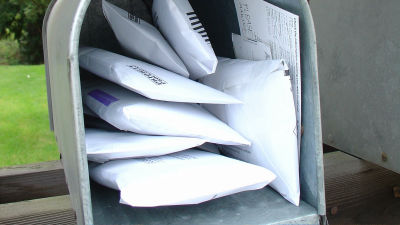Starlink revised the nominal value of the communication speed downward and limited the high-speed communication capacity in the daytime to 1 TB, and it is clear that a separate fee is required for addition

SpaceX's satellite Internet service ` ` Starlink '', which has been
Starlink Fair Use Policy - Starlink
https://www.starlink.com/legal/documents/DOC-1134-82708-70
Starlink Sets High-Speed Data Cap at 1TB Per Month, Lowers Advertised Speeds | PCMag
https://www.pcmag.com/news/starlink-sets-high-speed-data-cap-at-1tb-per-month-lowers-advertised-speeds
According to the fair use policy, Starlink's residential service subscribers will be allocated 'data capacity for basic access' and 'data capacity for priority access' of 1 TB each month. 'Data capacity for priority access' is consumed only during peak hours from 7:00 to 23:00, and 'priority access' is connected with priority over 'basic access'. Also, when 1TB of 'Priority Access' is used up, it shifts to 'Basic Access'.
If the network is congested, users using basic access may experience slower speeds and poorer performance compared to priority access. As a result, the communication quality of certain third-party services or applications may be degraded or unavailable.
'Data capacity for priority access' can be purchased additionally, and it will be 0.25 dollars (about 37 yen) per GB in the United States and 0.32 Canadian dollars (about 35 yen) per 1 GB in Canada. This policy applies only to the United States and Canada at the time of writing, and is scheduled to come into force in December 2022, but may be expanded to other regions in the future.

PCMag said of the specification, 'This change will most affect data-hungry customers who live in congested areas already full of Starlink subscribers. Although we have not made it clear, we have disclosed the speed of priority access, but the speed of priority access has decreased significantly from the previous nominal value.”

When PCMag asked SpaceX for details, he said he refrained from commenting, but he said that he had sent an email to the customer about the above policy. In addition to setting the data limit, the email stated that `` less than 10% of Starlink users have monthly data usage exceeding 1 TB ''.
When it comes to 1TB, Netflix 's 'ultra high definition (UHD 4K)' is a maximum of 7GB per hour, so it reaches about 142 hours of viewing in total. YouTube 's 1080p setting is said to be about 3GB per hour, which in this case is reached after about 333 hours of viewing. For this reason, heavy users of streaming services and users who are connected to one line in their family are likely to reach 1 TB easily.
Related Posts:
in Web Service, Posted by log1p_kr







